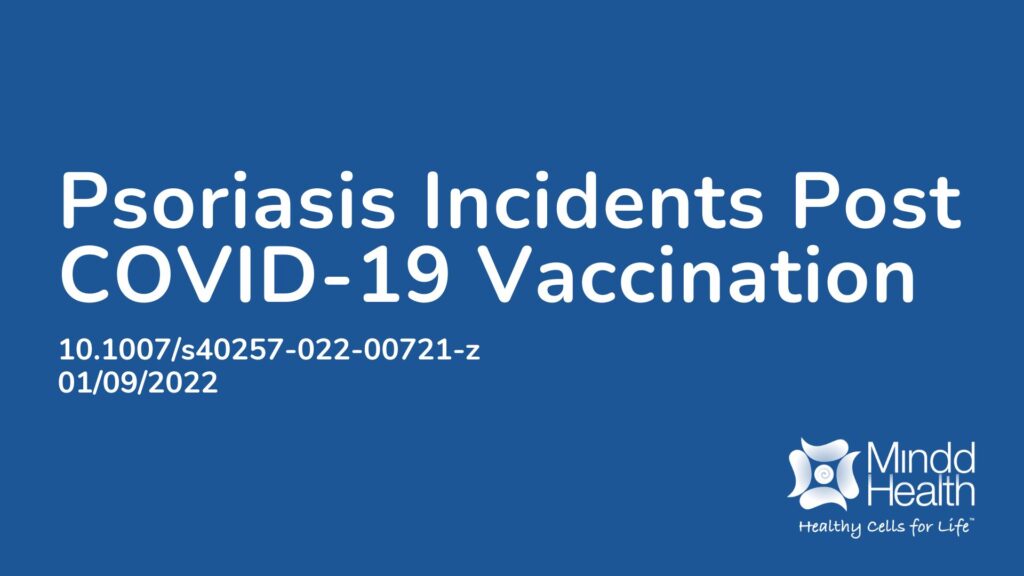Summary:
The COVID-19 pandemic has had major global health and economic impacts. Vaccination has been widely used to manage the severity and spread, including mRNA, adenoviral vector, and inactivated viral formulations. As vaccine coverage expanded, reports of skin-related side effects increased, including both new-onset psoriasis and flares of existing disease. Psoriasis is a chronic inflammatory condition involving immune dysregulation, with several clinical subtypes. Case reports have described disease onset or exacerbation following COVID-19 vaccination, sometimes in individuals without prior history. This systematic review identified studies reporting at least one patient with new or worsening psoriasis after COVID-19 vaccination. The search returned 367 articles, including cases of new-onset disease, flares, or both. Plaque psoriasis was the most frequent subtype reported. mRNA vaccines, particularly those from Moderna and BioNTech/Pfizer, were most often associated with these events. Psoriasis was observed after the first, second, or third dose, with flares most often occurring after the second. Symptom onset ranged from 2-21 days in new cases and 1-90 days in flares. These findings suggest that both new and recurrent psoriasis can occur after COVID-19 vaccination. Patients with psoriasis may benefit from close monitoring before and after vaccination.
Abstract:
Background: Vaccination has been promoted to control viral transmission in response to the coronavirus disease 2019 (COVID-19) pandemic. Cases of new-onset or exacerbation of psoriasis, an immune-mediated inflammatory disease, were reported following COVID-19 vaccination. However, a comprehensive review examining the association between COVID-19 vaccination and the occurrence or exacerbation of psoriasis has yet to be performed. Objective: The aim of this systematic review is to investigate the demographics, clinical variables, and outcomes associated with psoriasis following COVID-19 vaccination. Methods: A systematic literature search was conducted using the PubMed, Embase, Web of Science, and Cochrane databases from database inception to April 25, 2022. The review included studies with relevant terms, including ‘psoriasis,’ ‘psoriasis vulgaris,’ ‘guttate psoriasis,’ ‘pustular psoriasis,’ ‘palmoplantar pustulosis,’ ‘psoriatic erythroderma,’ ‘psoriatic arthritis,’ ‘COVID-19,’ and ‘vaccine.’ We included all studies reporting at least one patient who developed new-onset psoriasis or experienced a psoriasis flare following at least one dose of any COVID-19 vaccine. A flare was defined as the worsening of disease conditions after vaccination according to the study by Gregoire et al. The appraisal tool described by Murad et al. was used to assess the quality of case reports and series, whereas the National Institute of Health quality assessment tool was used to assess observational studies. Results: The initial search yielded 367 results, including 7 studies reporting new-onset psoriasis, 32 studies reporting psoriasis flares, and 4 studies reporting both. The most commonly observed psoriasis subtype was plaque-type psoriasis. mRNA vaccines, including those produced by Moderna and BioNTech/Pfizer, were frequently associated with subsequent psoriasis episodes. First, second, and third vaccine doses were associated with psoriasis incidents, with the second dose most frequently associated with psoriasis flares. Delayed onset was observed, ranging from 2 to 21 days in the new-onset group and from 1 to 90 days in the flare group. Most patients experienced favorable outcomes, with improvement or resolution occurring within 3 days to 4 months. Conclusions: Both new-onset psoriasis and psoriasis flares were reported as cutaneous adverse events following COVID-19 vaccination. Psoriatic patients may require regular follow-up before and after COVID-19 vaccination.
Article Publication Date: 01/09/2022
DOI: 10.1007/s40257-022-00721-z



